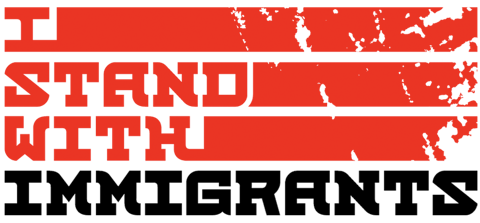Nizar & Khedir
“They paid me as a soldier but I operated as a civilian. Military was mandatory at that time. After my service, the Kurdish community escaped from the Iraqi government to the mountains in 1991, and since I am married to a Kurdish woman, I escaped with them.”
Nizar’s story:
I am from Iraq; I came to the U.S. in late 1996. I was in the Iraqi military during the Iran-Iraq war.
They sent me to teach English to high schools and middle schools. They paid me as a soldier but I operated as a civilian. Military was mandatory at that time. After my service, the Kurdish community escaped from the Iraqi government to the mountains in 1991, and since I am married to a Kurdish woman I escaped with them. We spent about a month between the Turkish-Iraqi borders in the mountains. Then NATO forces established refugee camps in that area, and I started working there in 1991. I continued until my birthday in 1996, when we were evacuated. I worked all these years for NATO. I still have three brothers and a sister back in Mosul. I was thirty-five when I left Iraq so my entire life is still there. I wish things would changed tomorrow, then I would book my flight back. I have my roots there, my friends. It is a totally different life. I have a daughter; she is married now, still in Iraq. She is in a relatively safer area. And I have my son who is taking criminal justice here at the University of Nebraska. Back in 2007, I felt that my children needed to be in an Arabic, Muslim, Middle Eastern environment.
I am a linguist. Lots of things were exposed to me, and I speak two languages. Within my job as an interpreter I felt that there was a need for my children to be somewhere else. We educated them, taught them, and expressed the principles to live by in the U.S. Back then, at that time, it was a simple life. Healthcare was free; your neighbors would take care of your children even better than you could. There was a clear sense of community to rely on.
It’s shocking to me sometimes that people don’t really care, or that they just blindly believe what other people say. If I had stayed in Iraq I would have definitely been killed because I was a collaborator with a foreign country. But how it was is not as devastating as how it has become. Saddam was a dictator, no doubt about it, but security was better, healthcare was better, services were better.
Almost everything was better than it is now. Iraq has been devastated by the occupation — I would never say liberation, because look what has become of the country.
Khedir’s story:
I came to the United States in 1979 as a graduate student. I went to Oklahoma State University and then the University of Nebraska. In 1978, I was granted a full scholarship. I went to Oklahoma State for about three months. I finished my master’s degree here in Lincoln.
Interestingly enough, I now work for the immigration office here downtown. I do adjudication, where I review cases based on employment when people apply.
I was born and raised in Baghdad. I never forgot my roots and where I came from. Sometimes my heart bleeds when I hear what happens over there. The intervention in Iraq was a disaster.
Like my brother said it was not liberation, but an absolute destruction, a destruction of the fabric of society there. The Iraqis are no longer the Iraqis. The love, the concern, the family, all of that was there. It is no longer there. The whole fabric of the country has dissolved. Unfortunately Iraq was handed to Iran and it has become another province of Iran. It pains me so much. I follow the news very closely. I still have hope that things will change, that the people of Iraq will see some changes for the better because what they have experienced is beyond belief.
#CELEBRATE IMMIGRANTS
We all know someone with an immigration experience or have an immigrant heritage story of our own. Join us to stay updated as we #CelebrateImmigrants across the country!

